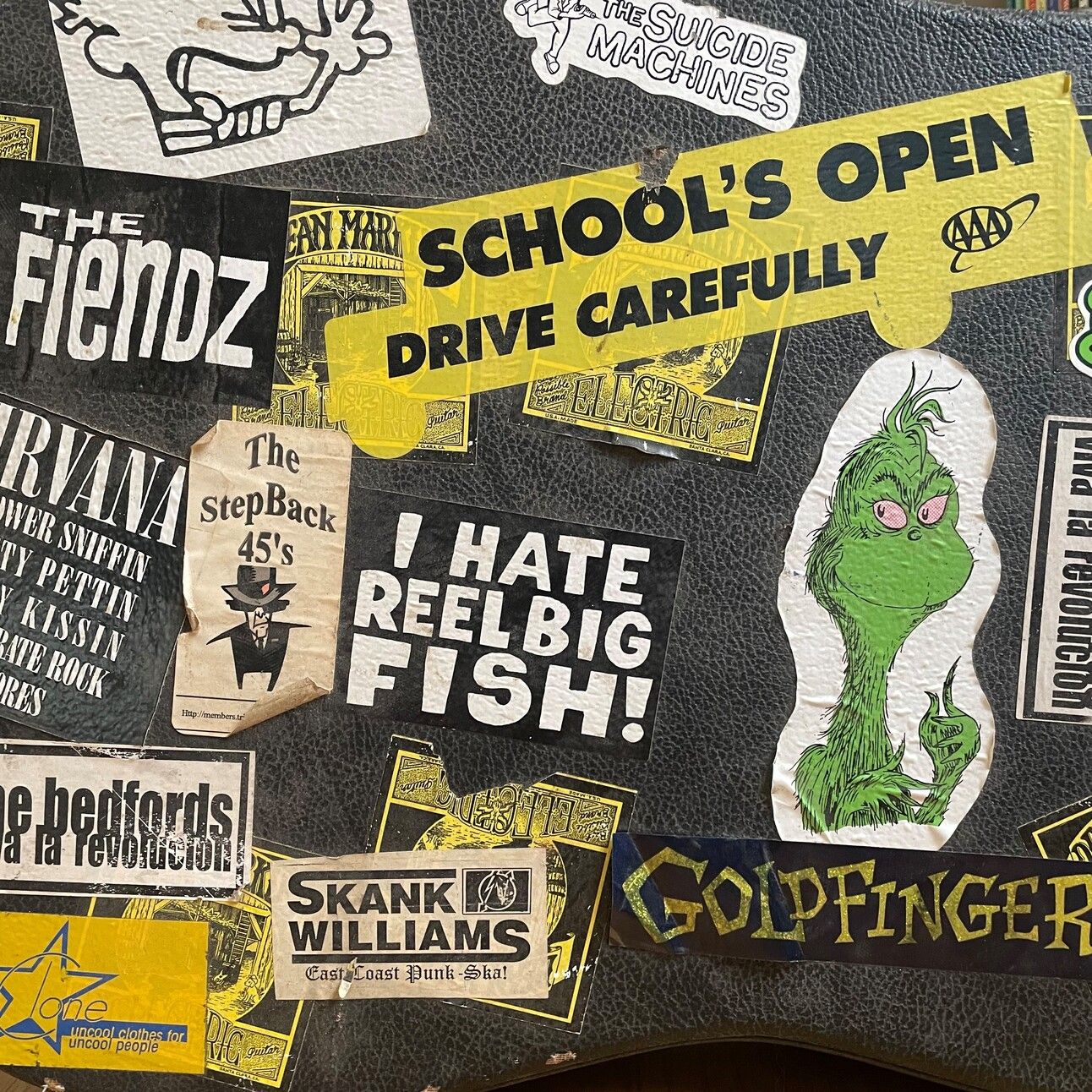Status And Selling Out

my very 90s coffee-house rocking acoustic guitar case
When you know something is cool before anybody else really knows it, you feel special.
I don't think discovery-status has "changed," but I do believe that generationally, "what constitutes selling out and does anybody care anymore" is a question worth asking. How can one of the most profound emotional sensibilities of my teenage years not precisely map to modern teenagers?
I was always up on all sorts of underground bands/artists/whatever we call them now. I still try to be. But, and I know this part still matters, it feels so good to find things “first”(ish).
And, it used to totally suck when everybody else caught on.
“Oh you like THEM? Just now? I get it, I guess. It’s just that their old stuff is so much better. They sold out.” - 90's Matt
What’s fascinating to 2020's Matt is the status seesaw at play in this emotional decision.
The emotional response to selling out has little to do with the artist. Yes, they got more popular, but that’s what happens to good art. My 90's emotional response had everything to do with me.
But who wants to admit that?! Can't I just blame them? They're the one's who chose to go off and get successful, I didn't choose that for them, even when I was preaching how totally amazing they were...
My anger, or my rejection of prior affections, was based on my status being lowered.
This is what matters. The perception of status to 90's Matt. In a cassette and CD and (very) limited access to discretionary funds era, rapidly shifting gears into AIM messages, Napster, and college dorm high-speed internet, social status was a different type of scarce.
Yeah, I was in my head, but so was everybody else. Or at least almost everybody else. Or at least the people I cared about because they also weren't like everybody else, and yeah, that's teenager logic, for you, you know?
When only I knew about a band, my status was higher. Then, when everybody found out, I felt it as a status-lowering transaction. Now they were all going to go buy the tape, or the t-shirt, or whatever, and my previously precious collection was rendered worthless.
Fed through the lens of my psychology, it makes a lot of sense why I kept looking for the next new thing. I was being trained. Trained with a Pavlovian response to go out and find the next Pavement's record, first. A whole 20-30 year generation feels this. Some of us grew to accept it. Others grew to love increasingly obscure things for the sheer self-protection of it all.
I’ll never look at selling out quite the same again. The personal betrayal of feeling status taken away. The annoying cool kid who baited you to safely rise into the air on the seesaw, only to drop off when he reached the bottom, and point and laugh at your terror as gravity plunged your bony behind into the non-cushioning deflated tire on the ground.
It was always going to hurt.
The internet has changed selling out. Or at least evolved it. People (re: teenagers and music critics?) don't seem to experience the same deflation from a band selling out anymore.
Once you add infinite shelf space and endless social media feeds, you can still score discovery status bumps by being first, BUT, you get even more of a status bump when it goes viral.
The modern shelf demands more stuff. The feeds need more trending topics. Not good, but definitely trending. The act of selling out has earned a serious, status-boosting, social function. All hail the algorithms.
And I don't hate this. I accept it. It's the tide changing.
But I also am coming to understand it as one of the key differences between generations.
The status seesaw is still there, but the rules got refreshed.
Confusion is scary.
Helping people not get duped on the seesaw and feeling worthy, within themselves and across the whole group, that's still the most important thing.
Put some good stuff on the shelf. Give somebody a boost. And if that means I'm asking you to sell out with me tonight, to sell out, with me oh yeah... then everything's gonna be alright.
Ps. “Sell Out” is the song to explain it, but the social safety of “Trendy” is a whole other context: “It's not so bad bein' trendy / Everyone who looks like me is my friend /Please don't hate me because I'm trendy /They're not gonna laugh at me again.” That’s 7th grade philosophy, but it’s solid emotional self-awareness. Not bad for ‘96.

